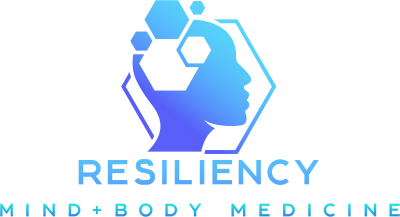Psychotic disorders, like schizophrenia, are a complex and challenging cluster of mental health disorders that affect millions of individuals worldwide. While medication and therapy are essential components of managing schizophrenia and other psychotic disorders, some individuals seek additional support from supplements. Although supplements should never replace prescribed treatments, I wanted to explore a few natural compounds have shown promise in complementing traditional anti-psychotic medication approaches. In this blog post, we will delve into some supplements that have been reported to be helpful for individuals with schizophrenia. Several of these compounds help by improving immune system function and by decreasing inflammation, key components that are thought to influence expression of psychotic symptoms epigenetically. Plant-based diets, Mediterranean diets, and ketogenic diets are also actively being studied as potential modifiers of symptom severity. This list is by no means comprehensive, but can be a great place for a provider to start for recommendations with common, well-known, and easy to obtain over the counter supplements.
1. Omega-3 Fatty Acids:
Omega-3 fatty acids can be commonly found in fish oil and algae-based supplements and have gained recognition for their potential benefits in mental health conditions, including schizophrenia. These essential fats play a crucial role in brain function and are believed to support neurotransmission and reduce inflammation. Several studies have suggested that omega-3 supplementation, when used alongside standard treatment, may help improve symptoms such as cognitive impairment and positive/negative symptoms associated with schizophrenia.
2. N-Acetylcysteine (NAC):
N-Acetylcysteine (NAC) is an antioxidant and amino acid precursor that has shown promise in various mental health disorders, including schizophrenia. Research suggests that NAC may enhance glutathione levels, which can help protect against oxidative stress and modulate brain function. Some studies have found that NAC supplementation may reduce symptoms such as anxiety, depression, and cognitive deficits associated with schizophrenia.
Recommended Brand:
Vitamin D deficiency has been linked to an increased risk of several mental health disorders, including schizophrenia. Adequate vitamin D levels are essential for brain health, immune system functioning, and bone health, and supplementation may be beneficial for individuals with low levels. While more research is needed to establish a direct relationship between vitamin D and schizophrenia symptom management, ensuring optimal vitamin D levels through supplements or sunlight exposure is generally considered a sensible approach.
Recommended Brand:
4. B-Vitamins:
B-vitamins, including folate (B9), vitamin B6, and vitamin B12, play vital roles in brain function and the production of neurotransmitters. Deficiencies in these vitamins have been associated with various psychiatric disorders, including schizophrenia. Some studies suggest that B-vitamin supplementation, especially in individuals with certain genetic variations affecting folate metabolism, may help reduce symptom severity and improve treatment outcomes.
Recommended Brand:
5. Sarcosine:
Sarcosine is a naturally occurring amino acid that acts as a glycine transporter inhibitor. Glycine is an important neurotransmitter involved in regulating brain activity. Studies have explored the potential benefits of sarcosine supplementation in individuals with schizophrenia, indicating improvements in negative symptoms, cognitive function, and overall quality of life. However, further research is necessary to establish its efficacy and safety.
Recommended Brand:
Important Considerations:
While these supplements may offer potential benefits for individuals with schizophrenia and other psychotic disorders, it is crucial to approach their use with caution. It is essential to consult with a qualified healthcare professional, such as a psychiatrist, before incorporating any new supplement into your treatment plan. They can help determine the appropriate dosage, evaluate potential interactions with medications, and monitor your progress.
Conclusion:
Supplements should never be seen as standalone treatments for schizophrenia. However, some natural compounds have shown promise in supporting standard treatments and may offer additional benefits for individuals with schizophrenia. Omega-3 fatty acids, N-acetylcysteine, vitamin D, B-vitamins, and sarcosine have demonstrated potential in improving various aspects of psychotic symptoms. Each person’s experience with schizophrenia and other psychotic disorders is unique, so what works for one individual may not work for another. Always work closely with your mental health provider to ensure a comprehensive and personalized treatment plan that addresses your specific needs.
References:
https://www.ncbi.nlm.nih.gov/pmc/articles/PMC4632760/
https://www.ncbi.nlm.nih.gov/pmc/articles/PMC4083629/
This post contains affiliate links. We may receive monetary compensation from products purchased directly through our website links.

